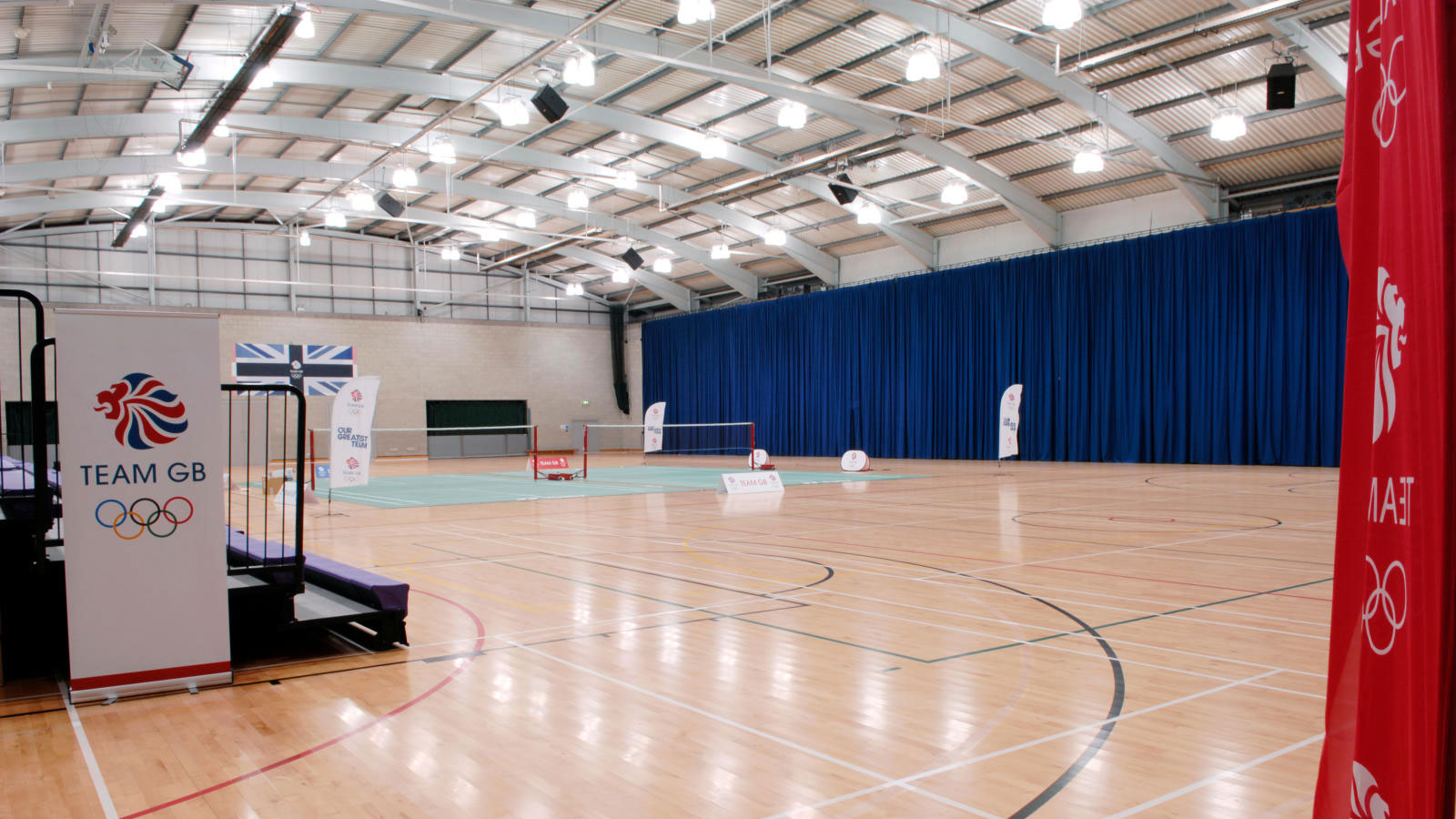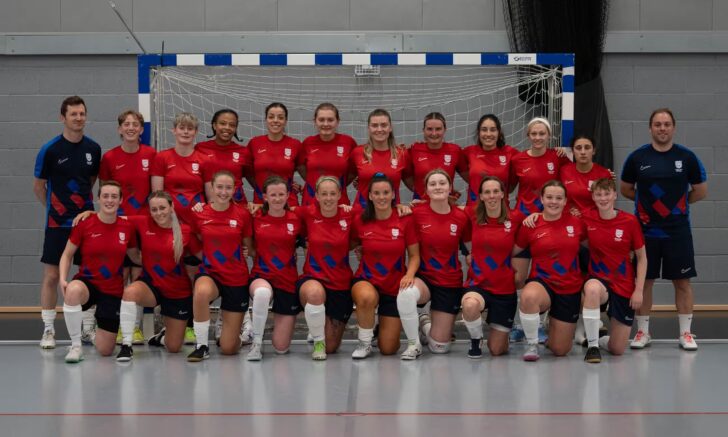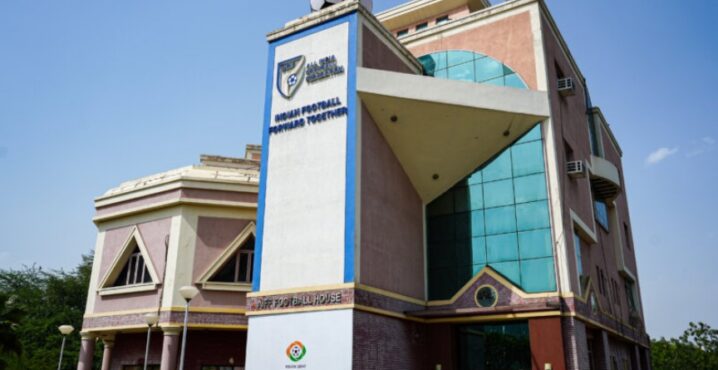Estimated reading time:10 minutes, 25 seconds
Despite England Futsal’s recent progress, questions remain around the FA’s long-term commitment to supporting the sport’s development beyond grassroots.
The England Men’s Futsal team is on the cusp of a significant journey as they re-enter the international stage via the UEFA Futsal EURO 2026 Main Round Qualifiers, which will begin in December with fixtures against Switzerland, Spain and Bosnia and Herzegovina. These matches represent not just an opportunity to compete internationally but also a major step in England Futsal’s broader mission to rebuild the FA’s international teams and establish a sustainable player pathway. This mission is further evidenced by their successful launch of the Lionesses and commitment to future entries in tournaments like the UEFA Under-19s Euros.
(Main picture: The England women futsal squad before facing Finland in their first World Cup qualifier. Photograph: Social Bull Media)
All three home games will take place at Loughborough University’s Sir David Wallace Sports Hall, which offers seating for 1,100 fans and boasts excellent sports facilities. England Futsal stated in their recent announcement that this partnership with Loughborough extends beyond game hosting, including plans for various activities on match days. These include training opportunities for coaches and referees, a community conference, and festival-style events for local schools and educational partners, reinforcing a community-centered approach to futsal.

Loughborough University’s Sir David Wallace Sports Hall – Source: Loughborough University website
To support this ambitious program, England Futsal has raised close to £160,000 to date. However, around £25,000 gap remains to fully fund the campaign at an optimal level. Players and staff are actively engaging the futsal community for support, including individual GoFundMe initiatives. Additionally, sponsorship opportunities are available for each home fixture, offering local businesses a chance to participate in areas like game presentation, catering, and fan engagement.
The upcoming fixtures for England’s men’s team at Loughborough are as follows:
- December 16, 2024 – vs. Switzerland
- February 4, 2025 – vs. Spain
- March 11, 2025 – vs. Bosnia and Herzegovina
England Women’s Futsal Team: Historic Entry in FIFA Women’s World Cup Qualifiers
Prior to confirming the men’s participation in the UEFA Futsal EUROs, the first-ever England Women’s Futsal team made a historic debut, competing in the FIFA Women’s Futsal World Cup qualifiers. Held in Moldova, the group stage saw the team securing a powerful 8-0 victory over Moldova, while also competing in tough matches that ended in a 5-2 loss to Finland and a 4-2 loss to Slovenia. Despite finishing third and not advancing to the Elite Round, their performance underscored their commitment and skill, and fans pondered what could have been if the players had been able to prepare more. Nations advancing to the next stage and hoping for a place in the first women’s FIFA Futsal World Cup include Italy, Hungary, France, Finland, Sweden, and Poland, with Spain and Portugal already qualified for the Elite Round.
Achievements Overshadowed by Uncertainties: England Futsal’s Path Forward
Firstly, congratulations to England Futsal for staying true to their vision and goals, despite limited support from the English FA. It’s inspiring to see the Lionesses proudly taking to the court, with the men’s team set to make their comeback soon, alongside an England U19 futsal team. This U19 squad was, notably, the first to represent England internationally after the elite futsal program was initially suspended and then fully cut by the FA during the early days of the COVID pandemic. These milestones showcase England Futsal’s commitment to reviving and advancing English futsal on the international stage.
While these milestones are a testament to England Futsal, the path has been far from straightforward, with challenging ‘grey areas’ along the way. The journey reveals deeper concerns that may become more pronounced post-development. With the elite futsal program once suspended and ultimately cancelled by the FA during COVID, the current success highlights both the achievements and the underlying uncertainties. Questions about sustained support, infrastructure, and long-term development remain, suggesting that, even amid the triumph, there is an ongoing need to secure stability for English Futsal’s future.
In a twist of irony—and a reminder of the importance of perspective—Stephen Michell, Chair of England Futsal, recently celebrated England Futsal’s logo inclusion in the FA’s ‘A Thriving Grassroots Game’ strategy. The logo, located on page 16, is displayed alongside major institutions like FIFA, UEFA, Sport England, and the Premier League—an apparent endorsement. However, a closer look reveals a stark contrast between this recognition and futsal’s actual representation in the FA’s strategic roadmap.
Turning to the contents section on page 2, one might expect futsal to have a dedicated section, given its global growth and status as one of the world’s fastest-growing sports. Yet futsal is not given its own section; instead, it’s briefly mentioned under ‘Definitions’ on page 2, grouped with alternative formats like small-sided and walking football, and listed as existing at ‘Tier 3 and below in the futsal pyramid.’
Further searching reveals a final mention on page 7, where futsal is included in the FA’s aim to ‘develop a range of sessional football offers to include small-sided, fun and fitness, walking football, and futsal, supported by reconfiguring their ‘Just Play programme.’ This program, as the FA describes, is a casual ‘kickabout’ offering recreational sessions for those looking for an hour of exercise and fun without committing to a full season. In a 17-page strategy document, futsal’s presence is limited to these two references. The FA’s approach frames futsal activities under their direction, as a fun grassroots-only endeavour without a competitive development or long-term growth focus.
This minimal inclusion is inadequate for a sport credited with developing some of the world’s best players and embraced as a foundational training ground in countries like Brazil, which has won the most World Cups in both football and futsal. Globally, futsal is recognized through major men’s and women’s World Cups, regional competitions like the UEFA Futsal EURO, and U19 championships. It has even replaced football in the Youth Olympics, and FIFA recently confirmed it will recommend futsal and beach soccer for inclusion in the 2028 Olympics.
Given that this strategy spans from 2024 to 2028, the absence of focused preparation is even more striking. FIFA’s recent push to include futsal in the 2028 Olympics, even initially as a demonstration sport, suggests a window of opportunity for national programs to prepare. A grassroots strategy is vital for any sport’s foundational growth, but the FA’s current approach to futsal is more symbolic than substantive, leaving a gap in support for a format with world-class potential. The recognition implied by the logo’s inclusion contrasts sharply with the limited commitment to futsal, suggesting that its full integration into English football remains an unfulfilled aspiration.
Some might argue that futsal’s limited presence in the FA’s grassroots strategy could be due to England Futsal’s role as the FA’s official futsal delivery partner, suggesting that they would be expected to develop their own national futsal strategy. However, this expectation overlooks the financial reality facing England Futsal. The organization is already struggling to secure funding to sustain its international teams—so where will the resources come from to deliver a grassroots strategy on a national scale, especially one that requires substantial investment?
Without meaningful access to funding from the FA, whether through Sport England or the FA’s own funding programs, England Futsal is left in a precarious position. The absence of financial support not only limits their capacity to develop futsal at the grassroots level but also threatens the stability and sustainability of their existing programs. This financial strain highlights a critical gap between the FA’s expectations of England Futsal as a delivery partner and the practical support required to fulfil such a role.
Readers may feel that I’m being overly critical, especially given the excitement around the return of the men’s senior team and the launch of a women’s team. And let me assure you, I am genuinely delighted to see these developments. England Futsal is delivering valuable opportunities to the futsal community despite immense challenges, and that dedication deserves to be celebrated. My concern, however, is whether this progress is sustainable and, more critically, why the world’s wealthiest football association isn’t offering consistent public support or funding for futsal.
The only rationale I can find brings me back to attitudes in England and the UK toward women’s football back in 2008/09 when I was living in England. At that time, even with the FA Women’s Premier League National Division, the success of England hosting the 2005 Euros, and reaching the 2009 final, many in the football community still downplayed women’s football despite impressive global attendance records, like the 90,000 fans at a World Cup match in America. It seems that the FA’s attitude toward futsal is similarly dismissive. They may see futsal as merely a FIFA ‘project’ —a term I have heard people within football use regarding beach soccer—something external to their core focus, and therefore not a priority for deeper development.
This stance contrasts sharply with the ambitions outlined in the FA’s own Fast Forward with Futsal strategy (2018–2024), which envisioned a much more integrated and supportive approach to futsal. Instead of fostering a sustainable competitive pathway and robust infrastructure, the current grassroots strategy appears to relegate futsal to a recreational role. In doing so, the FA is missing an opportunity to build on futsal’s potential in England and to align with a growing global movement around the sport.
You may wonder why I’m addressing these challenges, questioning the need to bring these difficulties to light. I’ve even received messages from followers expressing concerns that articles like this might cast a negative shadow over the sport. But where would women’s football be without the British media which played a significant role in pressuring the English Football Association (FA) to invest in women’s football, and as futsal continues to develop, gradually you will start to see the same for this sport. Historically, the FA did not prioritize women’s football, often viewing it as secondary to the men’s game. This perspective was evident in the FA’s initial reluctance to invest in the women’s game and its limited support for women’s teams and competitions. In the 1990s, as women’s football gained prominence globally, particularly in the United States, the English women’s football community experienced a mix of unity and apprehension regarding the Football Association’s (FA) support. The FA had lifted its ban on women’s football in 1971, but by the 1990s, the development of the women’s game in England lagged behind other nations.
In 1993, the FA assumed control of women’s football from the Women’s Football Association (WFA), aiming to integrate and develop the women’s game within its broader structure. However, this transition was met with mixed reactions. Some members of the women’s football community were optimistic, hoping that the FA’s involvement would lead to increased investment and resources. Others remained skeptical, concerned that the FA might not prioritize women’s football or fully understand its unique challenges.
During this period, there was a general sense of disappointment within the women’s football community regarding the FA’s level of support and investment. However, open criticism was often tempered by caution. Many feared that speaking out too strongly could jeopardize their positions or opportunities within the sport, given the FA’s significant influence over football in England. This led to a cautious approach, where concerns were expressed but often in a measured manner to avoid potential repercussions.
It’s intriguing how history repeats itself.
Organ Donation
Futsal Focus is a supporter of Dáithí Mac Gabhann and his family’s campaign to raise awareness of Organ Donation. We encourage our readers to learn more about Organ Donation: https://www.organdonation.nhs.uk/
Futsal Focus
You can read more articles about International Futsal by going to the top navigation bar or by clicking here
If you like this article and would like to keep updated on Futsal news, developments, etc. You can now follow Futsal Focus via Google News. By following our page which will send you an alert as soon as we publish an article. Please click here and follow us on Google.
You can also keep updated on Futsal news, developments by submitting your email below in the Subscribe to Futsal Focus option.
Follow Futsal Focus by clicking on Facebook, Twitter, or Instagram or on the social media buttons on the website.
















![Validate my RSS feed [Valid RSS]](https://www.futsalfocus.net/wp-content/uploads/2020/01/valid-rss-rogers.png)




